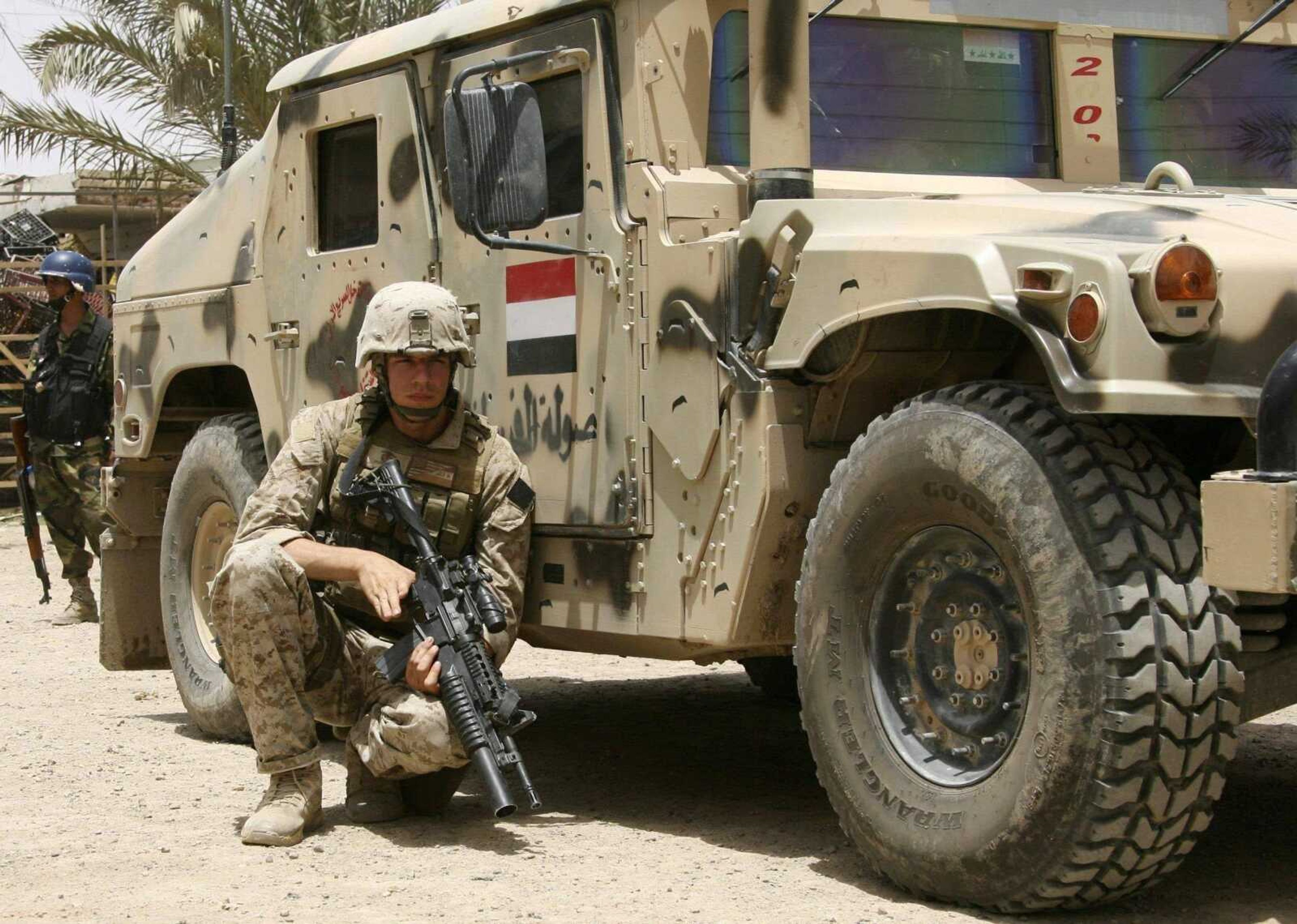Officials: Most troops will be out of Iraq in 18 months
WASHINGTON -- President Obama plans to remove all U.S. combat troops from Iraq by August of next year, administration officials said Tuesday, ending the war that helped define his presidential campaign -- although a little more slowly than he promised...
WASHINGTON -- President Obama plans to remove all U.S. combat troops from Iraq by August of next year, administration officials said Tuesday, ending the war that helped define his presidential campaign -- although a little more slowly than he promised.
The withdrawal plan -- an announcement could come as early as this week -- could help Obama turn his attention to another campaign pledge: Deploying more troops to Afghanistan, a region he calls the central front in the war on terrorism.
The timetable is a compromise. Removing so many people and tons of equipment presents logistical difficulties. Some commanders and advisers worry that security gains could be reversed if troops are brought out too soon, while others think the bulk of U.S. combat work is long since done.
"We are now carefully reviewing our policies in both wars, and I will soon announce a way forward in Iraq that leaves Iraq to its people and responsibly ends this war," Obama said in his address to Congress on Tuesday.
Obama built grassroots support for his White House bid by pledging to withdraw troops from Iraq 16 months after taking office. That schedule, based on removing roughly one brigade a month, was predicated on commanders determining that it would not endanger U.S. troops left behind or Iraq's fragile security.
Obama expects to leave a large contingent of troops in Iraq, between 30,000 and 50,000 troops, after August 2010 to advise and train Iraqi security forces and to protect U.S. interests, according to two administration officials who spoke on condition of anonymity because the plan has not been made public.
The withdrawal of American forces is set to be completed by December 2011, the period by which the U.S. agreed with Iraq to remove all troops.
A senior White House official said Tuesday that Obama is at least a day away from making a final decision. An announcement today was unlikely, he said, but added that Obama could discuss Iraq during a trip to North Carolina on Friday.
About 142,000 U.S. troops are in Iraq, roughly 14 brigades, about 11,000 more than the total in Iraq when President George W. Bush announced in January 2007 that he would "surge" the force to put down the insurgency. He sent an additional 21,000 combat troops to Baghdad and Anbar province.
Although the number of combat brigades has dropped from 20 to 14, the U.S. has increased the number of logistical and other support troops. A brigade is usually about 3,000 to 5,000 troops.
The White House considered at least two other options -- one that followed Obama's 16-month timeline and one that stretched withdrawal over 23 months, The Associated Press reported earlier this month.
Some U.S. commanders have spoken more optimistically in recent months about prospects for reducing the force.
Marine Maj. Gen. John Kelly, who just left his job overseeing U.S. operations in Anbar Province, said Tuesday that he saw violence drop to an almost "meaningless" level over the past year.
Kelly told reporters Tuesday that in the area that was the home ground of the Sunni insurgency, American combat forces don't have enough to do and most could have pulled out months ago.
"There is still a security issue there, but in the province I just left the (Iraqi) army and the police are more than handling the remnants of what used to be al-Qaida," Kelly said. "There's other parts of Iraq that aren't going quite as well but all of Iraq is doing pretty well."
According to officials, Obama had requested a range of options from his top military advisers, including one that would have withdrawn troops in 16 months. Defense Secretary Robert Gates and Adm. Mike Mullen, chairman of the Joint Chiefs of Staff, had recently forwarded withdrawal alternatives to the White House for Obama's consideration.
In addition to the U.S. troops to be withdrawn, there is a sizable cadre of contractors who provide services to them who would pack their bags as well. There were 148,050 defense contractor personnel working in Iraq as of December, 39,262 of them U.S. citizens.
There are more than 200 U.S. military installations in Iraq. According to Army officials interviewed by the Government Accountability Office, it can take up to two months to shut down small outposts that hold up to 300 troops. Larger entrenched facilities, like Balad Air Base, could take up to 18 months to close, according to the GAO.
As of Monday, at least 4,250 members of the U.S. military had died in the Iraq war since it began in March 2003, according to an Associated Press count. More than 31,000 have been injured. An additional 35,841 have received medical air transport due to nonhostile incidents.
Congress has approved more than $657 billion so far for the Iraq war, according to a report last year from the Congressional Research Service.
------
Associated Press writers Jennifer Loven, Robert Burns, Lolita C. Baldor, Steven Hurst, Anne Flaherty, Richard Lardner and Pauline Jelinek contributed to this report.
Connect with the Southeast Missourian Newsroom:
For corrections to this story or other insights for the editor, click here. To submit a letter to the editor, click here. To learn about the Southeast Missourian’s AI Policy, click here.









